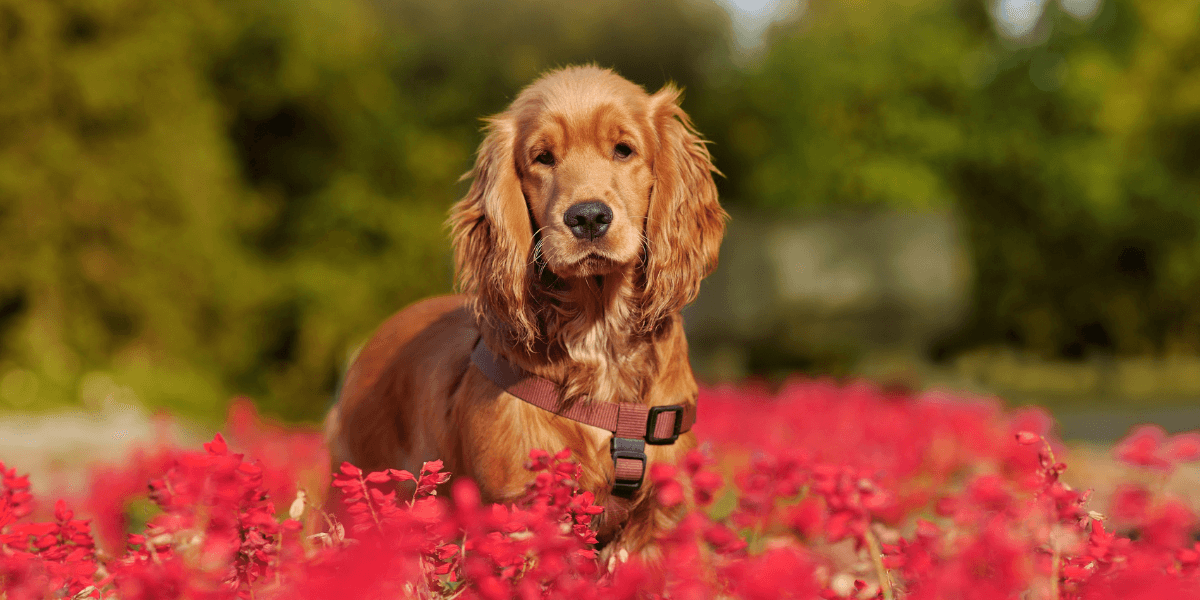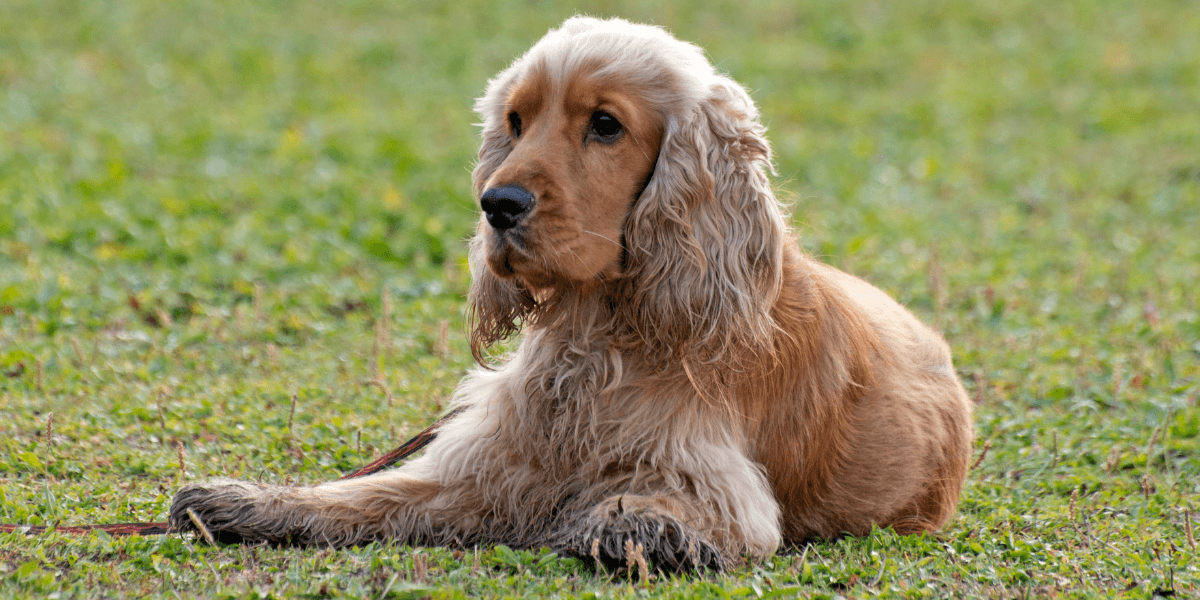Introduction
The Ultimate Guide to Cocker Spaniel: Discover everything you need to know
- Explore the unique characteristics that make the Cocker Spaniel a beloved companion
- Learn about the breed’s history and its evolution over the years
- Understand the essential care requirements to keep your Cocker Spaniel healthy
- Find out the best training tips to ensure a well-behaved and socialized pet
- Get insights into common health issues and how to prevent them for a long, joyful life
1. History and Origins of the Cocker Spaniel

Cocker Spaniels have a rich history that dates back several centuries.
Key Points:
- Historical Use: Originally bred for hunting and retrieving game
- Breed Recognition: Gained formal recognition as a distinct breed in the late 19th century
- Origin: England, with distinct variations developed in both the UK and the USA
- Evolution: Shifted from working dogs to popular family pets
2. Cocker Spaniel Appearance and Characteristics

Understanding their physical characteristics can help in providing the best care.
Appearance Features:
- Coat: Silky and medium-length, requiring regular grooming
- Ears: Long and feathered, prone to infections if not cleaned regularly
- Eyes: Large and expressive, need regular checks for health issues
Best Practices:
- Grooming: Brush your Cocker Spaniel’s coat several times a week to prevent matting
- Ear Care: Check and clean ears weekly to avoid infections
- Eye Care: Regularly check for signs of irritation or infection
3. Grooming Essentials for Cocker Spaniels

Here’s a detailed grooming routine to keep your Cocker Spaniel looking their best:
Grooming Routine:
- Brushing: Use a slicker brush and comb to detangle and smooth the coat
- Bathing: Bathe your Cocker Spaniel every 4-6 weeks or as needed
- Trimming: Regular trims are necessary to keep their coat manageable
Tips:
- Invest in Quality Tools: A good brush and grooming kit can make a significant difference
- Professional Grooming: Consider professional grooming every few months
4. Cocker Spaniel Health and Wellness

Cocker Spaniels are generally healthy dogs, but they are prone to specific health issues.
Common Health Issues:
- Ear Infections: Due to their floppy ears, they are prone to infections
- Hip Dysplasia: A genetic condition affecting the hip joint
- Eye Problems: Such as cataracts and progressive retinal atrophy (PRA)
Health Management:
- Regular Vet Visits: Schedule annual check-ups to catch any issues early
- Proper Diet: Feed a balanced diet tailored to their specific health needs
- Exercise: Regular exercise to maintain a healthy weight and overall well-being
Learn how to prevent and manage hip dysplasia in your Cocker Spaniel for optimal health.
5. Training and Socialization

Training is essential for Cocker Spaniels to thrive as well-behaved, well-adjusted pets.
Training Tips:
- Positive Reinforcement: Use treats and praise to encourage good behavior
- Early Socialization: Expose your Cocker Spaniel to various people and environments
- Basic Commands: Teach basic commands like sit, stay, and come
Best Practices:
- Consistency: Stick to a regular training schedule
- Patience: Be patient and understanding; Cocker Spaniels respond well to gentle guidance
6. Nutrition and Diet for Cocker Spaniels

Proper nutrition helps in managing weight, ensuring a shiny coat, and overall well-being.
Diet Recommendations:
- High-Quality Dog Food: Choose food that meets AAFCO standards for their life stage
- Portion Control: Follow feeding guidelines to avoid overfeeding
- Avoid Human Food: Steer clear of giving them table scraps or foods that are toxic to dogs
Best Practices:
- Regular Feeding Schedule: Maintain a consistent feeding routine
- Hydration: Ensure your dog has access to fresh water at all times
Discover the best foods and supplements for your Cocker Spaniel's diet to ensure optimal nutrition.
7. Living with a Cocker Spaniel: Tips for a Happy Life

Cocker Spaniels are affectionate and thrive on human companionship.
Living Tips:
- Exercise: Provide regular exercise through walks and playtime
- Mental Stimulation: Engage them with interactive toys and training exercises
- Family Interaction: They love being part of family activities and need social interaction
Best Practices:
- Create a Routine: Establish a daily routine for exercise, feeding, and play
- Provide a Cozy Space: Ensure they have a comfortable, designated resting area
Explore effective training tips to raise a well-behaved Cocker Spaniel and enjoy a happy life together.
FAQs
1. What is covered in the Ultimate Guide to Cocker Spaniel?
- The guide covers care, training, and health tips
2. How do I train my Cocker Spaniel effectively?
- Use positive reinforcement and consistent routines
3. What are common health issues for Cocker Spaniels?
- Issues include ear infections and hip dysplasia
4. How often should I groom my Cocker Spaniel?
- Regular grooming every 6-8 weeks is recommended
5. What diet is best for a Cocker Spaniel?
- High-quality dog food with balanced nutrients is ideal
6. Are Cocker Spaniels good with children?
- Yes, they are friendly and good with kids
7. Where can I find more details about Cocker Spaniel care?
- The Ultimate Guide to Cocker Spaniel has all the details you need
Conclusion
- Ultimate Guide to Cocker Spaniel, Embrace the knowledge to care for your new furry friend
- Apply the tips from this guide for a healthier and happier Cocker Spaniel
- Remember the key traits of Cocker Spaniels to better understand their needs
- Use this guide to make informed decisions about training and health care
- Keep revisiting this guide for ongoing tips and advice on your Cocker Spaniel's care
Please share it with fellow dog lovers and leave a comment below with your experiences!
References
For more information on The Ultimate Guide to Cocker Spaniel, check:
- Cocker Spaniel Puppies: The Ultimate Guide for New Dog Owners
- Choosing the Best Orthopedic Dog Bed
- A Guide to Preventing Joint Problems in Dogs
- The Ultimate Guide to Cocker Spaniel
- How to Train a Cocker Spaniel: Training Tips
- All About American Cocker Spaniel: Your Ultimate Guide
Thank you!




